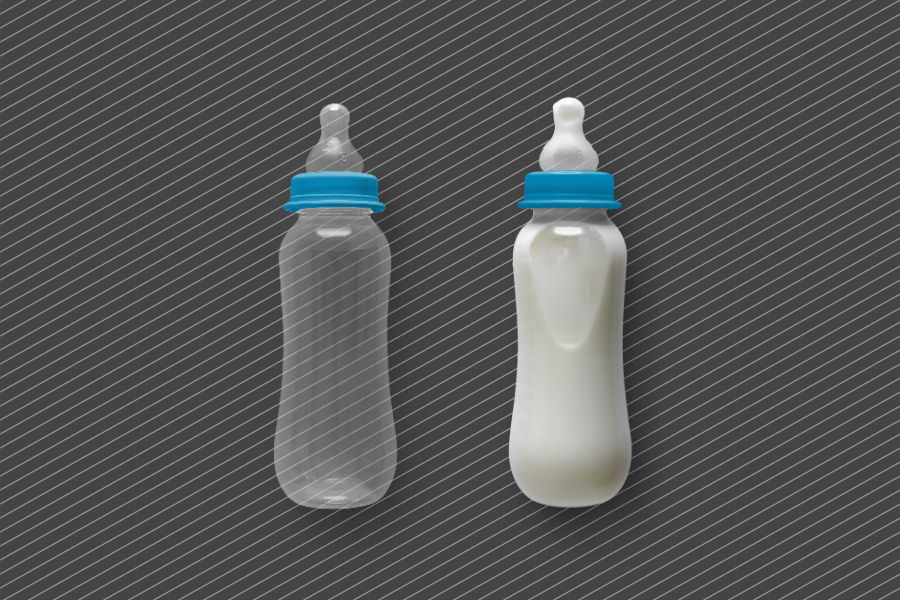
“I want to breastfeed my baby, but I can’t produce enough milk and it’s difficult to find a good feeding position. I don't think I will be able to breastfeed because of this... My co-workers have already reached full motherhood, but I feel even more depressed because they seem to have been able to breastfeed, so I feel like an insufficient mother.”
Breast milk is good for babies. Nutrients tailored to each baby's age are delivered, and mothers and babies feel a bond with direct breastfeeding.
However, that does not mean that 'breastfeeding' is the be all and end all of parenting. There are many situations in which breastfeeding is not possible because of various conditions during childbirth or due to birth problems.
When raising children, it is too difficult to make something the 'correct answer' and assume that everything else is insufficient. Parenting is not a mathematical formula. What is more important than whether or not someone is breastfeeding is breastfeeding is the state of mind of the parent who gave birth. Don't feel guilty.
Naturally, breast milk is best for babies, but formula-fed children aren't particularly troubled. Depending on the situation, it is fine for a baby to drink only formula milk, or a reduced breast milk intake can be supplemented with formula milk.
If a baby is born too small, they may not have enough power to suckle, and even then with breastfeeding, the baby will not get enough milk, which will increase irritation and make it difficult for the caregiver.
Take it easy, but continue to challenge breastfeeding only as far as you can. If you find peace of mind in your current approach, you can continue to challenge breastfeeding. When you are under a lot of stress, your milk supply will decrease. Rather than aiming for complete breastfeeding according to the textbook, it is sufficient to have an attitude of “I will try to breastfeed a little more than yesterday.”
What if the mother is worried about not having enough breast milk?
The reason many caregivers give up breastfeeding is because of the amount of milk they can produce. They are worried that the baby is not getting enough, so they often choose formula feeding or mixed feeding.
However, newborn babies can grow with just a little milk. At this time, check the amount of milk of others and do not be envious. It is enough if you have a little more milk today than you did yesterday. Don't compare yourself to the mother in the room next to the postpartum care center. Just watch and see if your baby is growing well.
Tip: Want to increase your milk supply?
If you want to increase your milk supply, the best thing to do is to get your baby latching to your nipple frequently. Feeding should be at least 8 times a day. Think of it as increasing the frequency once every 1-2 days. If you are currently feeding 4 times, try increasing the number of feedings to 5 over 1 to 2 days.
When you reach 5, you will have to take your time again and adjust to 6, and so on, gradually increasing the number of feedings to 8. You can't jump straight from 4 to 8. That's impossible.
Immediately after the baby is born, please feel free to breastfeed at night. The hormone prolactin is released in large quantities at night, and this hormone released at night increases breast milk production.
Therefore, frequent night feeding is necessary to increase milk production. If you are not breastfeeding your baby at night, express yourself at least. It is good to do it once every 3-4 hours.

Will using a breast pump help?
If you want to increase the amount of breast milk, directly feeding your child is the best way to do so. No matter how luxurious the breast pump is, it can't get all the milk out of the mother's milk.
When the mother's milk is empty, new milk is produced, and this process repeats to increase the amount of milk. If there is still milk remaining in the breasts, it is unlikely that you will increase the amount of milk produced.
However, if the baby does not suck well, then discharging milk using a breast pump can work effectively. Therefore, breast pumps are also good for increasing the milk supply by pumping directly after feeding your baby.
Tip: Breastfeeding posture is also important.
If you want to sustain breastfeeding for a long time, you need to find a comfortable breastfeeding position. A chair suitable for breastfeeding should have the soles of the feet on the ground, no armrests, and an upright back to keep your posture straight when seated.
Choose a chair at home that doesn't have armrests, provides good support for your lower back and back, and isn't too soft. If everything else is fine, but the footrest is the only problem, you can stack books, etc. to make a stand.
There should be no tension on the mother's body when the baby is placed on the nursing cushion to breastfeed. It's nice to be able to recognize for yourself whether your body is comfortable or uncomfortable, and why, by taking pictures. Ask someone else to take a picture of your breastfeeding position.
You don't even have to look at your baby all the time while breastfeeding. If you keep looking at your baby while breastfeeding, you will get a sore neck. After breastfeeding your baby, straighten your head and release tension in your shoulders. Relieving body tension will also relieve tension in your chest (and even the mammary glands), making it easier for the baby to suckle.
Parenting advice from Director Hyang-Hwa Kwon
Praise the baby while breastfeeding and praise yourself as the mother.
Babies who are praised are more likely to suckle harder. Even if a baby doesn't seem to understand, they know they’re being praised by their mother's pleasing voice. When the mother feels good, the baby feels good too, which has a positive effect on the overall breastfeeding cycle.
If the mother continues to struggle, sigh, and look anxious, the baby will not be interested in breastfeeding. This is because mother-child emotions are transferred. Start with a more positive mindset, breastfeeding, which benefits both the baby and the mother!
---------------------------------------------------
Author: Kwon Hyang-hwa
- Newborn Childcare Coach
- IBCLC International Breastfeeding Specialist
- Worked as the director of a postpartum care center for 10 years.







